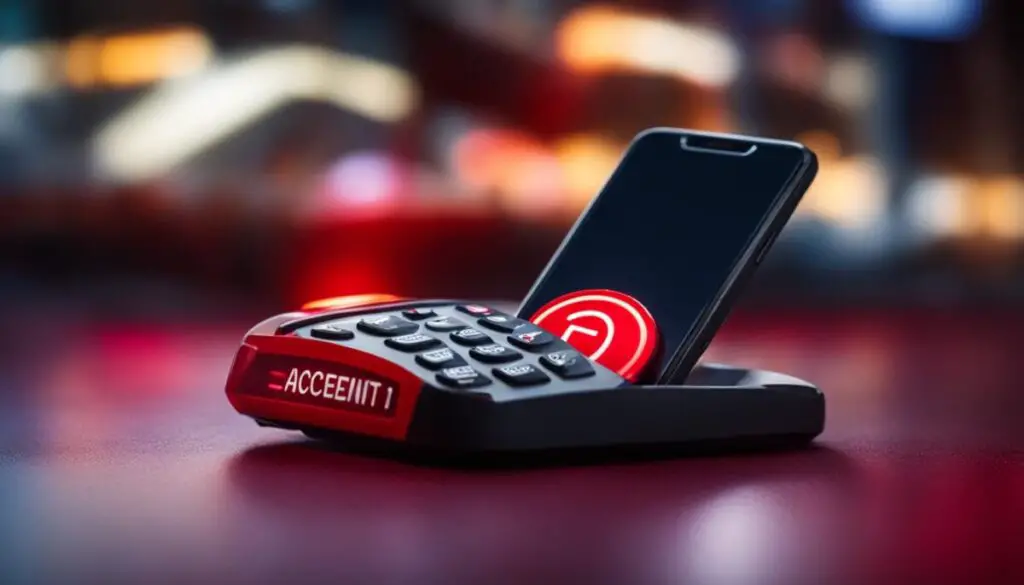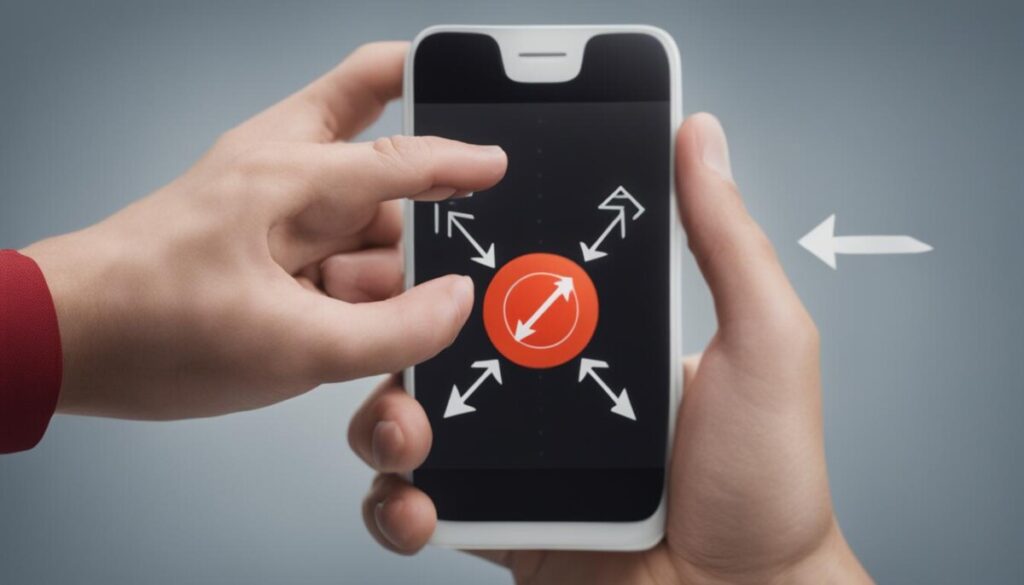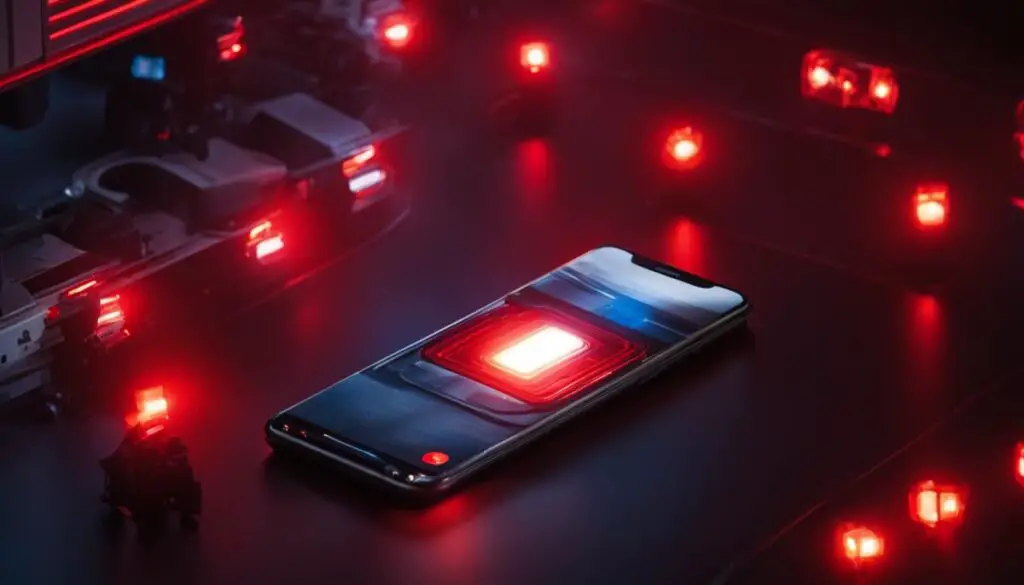Accidental 911 calls from smartphones can be a frustrating and inconvenient issue. Users of older Pixel devices, such as the Pixel 3, have reported that their phones are dialing 911 without their intention. The problem seems to be related to a bug in the Personal Safety App, which automatically dials 911 if the power button is pressed five times quickly. This bug is affecting the power button of some Pixel devices, causing it to get stuck and trigger the emergency call.
Affected users have experienced the embarrassment of having emergency services show up at their door, even though it was a false alarm. Google has not provided a solution for this issue, leaving users to resort to unconventional methods like hitting their phones or using isopropyl alcohol on the power button. Upgrading to a newer phone may be the best solution, as older Pixel devices are no longer covered by warranty and Google does not provide support for them anymore.
Key Takeaways:
- Accidental 911 calls from smartphones are often caused by bugs or malfunctions, such as the power button issue on older Pixel devices.
- Google has not provided a solution for the problem, leaving affected users to find their own workarounds.
- Upgrading to a newer phone may be necessary to avoid accidental 911 calls, as older devices may not receive the necessary support and updates.
- Awareness of the issue and taking necessary precautions can help prevent accidental 911 calls and minimize the inconvenience faced by users and strain on emergency services.
- Collaboration between smartphone manufacturers, emergency services, and regulatory bodies is essential to finding long-term solutions and promoting public safety.
The Impact of Accidental 911 Calls on Emergency Services
Accidental 911 calls not only inconvenience users, but they also have a negative impact on emergency services. Dispatchers and operators receive numerous false alarm calls, taking away valuable time and resources that could be used to attend to genuine emergencies. In some cases, emergency calls have to be put on hold to triage incoming accidental calls. This delay can potentially have life-threatening consequences.
It is crucial to find a solution to prevent accidental 911 calls, as they create unnecessary burdens on emergency services and may cause delays in responding to genuine emergencies.
“Accidental 911 calls not only inconvenience users, but they also have a negative impact on emergency services.”
| Impact of Accidental 911 Calls | Solution |
|---|---|
| 1. Time and resource wastage for emergency services | Develop safeguards to prevent accidental calls |
| 2. Delay in attending to genuine emergencies | Implement better control over emergency settings on phones |
| 3. Risk of life-threatening situations due to call triage delays | Launch education and awareness campaigns for users |
Apple’s Role in Accidental 911 Calls
Apple, a prominent smartphone manufacturer, has also been associated with unintentional 911 calls. The issue stems from a distribution site located in Elk Grove, which has been responsible for approximately 1,600 false alarm 911 calls since October 2017.
These accidental calls are believed to originate from either iPhones or Apple Watches, as both devices have a feature that triggers an emergency call with just a button press. During these unexpected calls, dispatchers have reported hearing background noise of technicians working, confirming that they are coming from an Apple repair and refurbishing center.

This influx of false alarm calls from Apple devices adds to the burden faced by emergency services, diverting their attention and resources from genuine emergencies. It is crucial for Apple and other smartphone manufacturers to address this issue and implement effective measures to prevent unintended 911 calls.
The Need for Solutions to Prevent Accidental 911 Calls
Accidental 911 calls are a widespread problem that needs urgent attention. Smartphone manufacturers must prioritize the development of solutions to prevent these distressing incidents. Implementing safeguards in device software can help ensure that emergency calls are not triggered accidentally. By providing users with more control over their phone’s emergency settings, they can customize the activation of the emergency call feature, minimizing the risk of accidental calls.
Education and awareness campaigns are crucial in informing users about the potential risks and consequences of accidental 911 calls. By educating users about the steps they can take to prevent such incidents, including locking their devices or utilizing emergency call confirmation prompts, these campaigns play a vital role in reducing accidental calls. Increasing user awareness promotes responsible phone usage and encourages individuals to take necessary precautions to prevent distressing accidental 911 calls.
It is essential for smartphone manufacturers to address this issue effectively to enhance user experience and maintain the integrity of emergency services. By prioritizing the prevention of accidental 911 calls, manufacturers can demonstrate their commitment to customer safety and satisfaction. Additionally, collaborating with emergency services, regulatory bodies, and industry experts can lead to the development of comprehensive solutions that address the root causes of accidental calls.
Legal and Ethical Implications of False Alarm 911 Calls
False alarm 911 calls not only waste the time and resources of emergency services, but they can also lead to missed genuine emergencies. Every call made to 911 is treated as a potential emergency, resulting in dispatchers and operators responding promptly and dispatching emergency personnel. When accidental calls flood the system, actual emergencies may be delayed or overlooked, posing a serious risk to public safety.
This raises legal and ethical concerns regarding the responsibility of smartphone manufacturers to address this issue and ensure that their devices do not generate false alarm calls. The consequences of missed actual emergencies due to accidental calls can have severe implications, potentially impacting the lives and well-being of individuals in need. It is imperative that smartphone manufacturers implement measures to prevent the automatic dialing of emergency services and minimize the occurrence of false alarms.

The impact of missed actual emergencies is a burden that emergency services should not have to bear. The rise in accidental 911 calls places unnecessary strain on the system, diverting vital attention and resources away from legitimate emergencies. This not only hampers the efficient operation of emergency services but also compromises public safety. Swift and effective action is required to address this issue, ensuring that emergency services can provide timely assistance to those truly in need.
Manufacturers have both a legal and ethical responsibility to develop and maintain devices that do not trigger false alarm 911 calls. By prioritizing the implementation of safeguards and rigorous testing, smartphone manufacturers can minimize the occurrence of accidental dialing, thus reducing the strain on emergency services and preventing the potential harm caused by missed actual emergencies.
User Experiences with Accidental 911 Calls
Accidental 911 calls can be frustrating and embarrassing experiences for users. On online platforms like Reddit, affected individuals have shared instances where their phones repeatedly dialed 911 without their intention. One user described how their phone called 911 multiple times even after they had explained the mistake to the operator. These incidents highlight the urgent need for smartphone manufacturers to rectify the issue and provide better support to affected users.
To understand the impacts of accidental 911 calls, it’s essential to consider the user’s perspective. While it may seem like a minor inconvenience, these incidents can lead to unnecessary panic and potentially divert emergency resources from genuine emergencies. Users report feeling embarrassed and apologetic for the false alarms, while also facing the potential consequences of delayed response times for legitimate emergency situations.
By sharing their experiences, users hope to draw attention to the issue and encourage smartphone manufacturers to take action. A responsive approach from manufacturers could include thorough testing, software updates, and improved customer support to prevent and address accidental 911 calls. It’s crucial for manufacturers to prioritize user safety and ensure that emergency call features function reliably without triggering unnecessary emergency calls.
Potential Solutions and Workarounds for Accidental 911 Calls
While smartphone manufacturers have yet to provide comprehensive solutions, affected users have come up with temporary workarounds to prevent accidental 911 calls. These methods, although unconventional, can be helpful in certain situations.
Some users have reported success in stopping the repeated calls by smacking their devices against their hands or tables. The impact temporarily unsticks the power button, preventing further accidental calls to emergency services.
Another method that some users have tried is using isopropyl alcohol to clean the power button. By gently applying the alcohol to the button, they hope to resolve any sticking or malfunctioning issues that may cause the unintended emergency calls.
However, it is important to note that these methods come with risks and may not be effective for all users. Applying excessive force or using the wrong type of cleaning solution can potentially damage the device. Therefore, it is crucial for smartphone manufacturers to address the root cause of accidental 911 calls and provide permanent solutions.

Workarounds for Preventing Accidental 911 Calls
| Method | Potential Effectiveness | Risks |
|---|---|---|
| Smacking the device | Temporary solution, may stop the repeated calls | Potential device damage |
| Using isopropyl alcohol on the power button | Potential solution, may resolve sticking or malfunctioning issues | Potential device damage if not used correctly |
The Role of Smartphone Manufacturers in Resolving the Issue
When it comes to the issue of accidental 911 calls, smartphone manufacturers play a crucial role in finding a resolution. It is their responsibility to ensure that their devices are designed and tested thoroughly to prevent malfunctions or issues with the power buttons and emergency call features.
Thorough testing and quality assurance processes can help identify and fix any potential problems before the devices reach the hands of users. By prioritizing user safety and convenience, manufacturers can take proactive measures to prevent accidental 911 calls from happening in the first place.
An important aspect of resolving this issue lies in providing timely software updates and ongoing support to users. By promptly addressing any issues that arise and releasing updates as needed, manufacturers can ensure that affected users have access to necessary fixes and improvements.
Manufacturers should also take into consideration user feedback and experiences related to accidental 911 calls. By actively listening to their customers, they can gather valuable insights and use them to further enhance the design and functionality of their devices.
Ultimately, the role of smartphone manufacturers goes beyond just producing devices. They have a responsibility to prioritize user safety and convenience, taking proactive measures to prevent accidental 911 calls and promptly addressing any issues that may arise. By doing so, they can contribute to a safer and more reliable smartphone experience for users.
The Importance of Upgrading to Supported Devices
For users experiencing issues with accidental 911 calls, upgrading to supported devices is a crucial consideration. As software support ends for older devices, such as the Pixel 3, users may miss out on the necessary updates and fixes to resolve the problem. Although upgrading may require an investment, it offers several significant benefits.
When users upgrade to newer devices, they gain access to the latest technology, ensuring a smoother and more efficient user experience. In terms of accidental 911 calls, manufacturers often provide enhanced safety mechanisms in their newer models. These mechanisms are specifically designed to prevent unintended emergency calls, alleviating the frustration and inconvenience associated with such incidents.
Moreover, purchasing a supported device guarantees ongoing software support and updates from the manufacturer. This ensures that users receive timely fixes and improvements, which can address issues related to power buttons, emergency call features, and accidental 911 calls. By staying up to date with the latest software releases, users can benefit from enhanced user safety features and improved overall device performance.

While upgrading to a supported device may require an initial investment, it ultimately provides peace of mind and a more reliable smartphone experience. Users can avoid the frustration of encountering recurrent accidental 911 calls and the potential embarrassment of unnecessary emergency service visits.
By investing in a supported device, users prioritize their safety and well-being. They demonstrate their commitment to utilizing technology that aligns with established safety standards and manufacturer support. With enhanced safety features and ongoing software updates, supported devices offer an effective solution to prevent accidental 911 calls and ensure a seamless user experience.
Collaborative Efforts to Address Accidental 911 Calls
Preventing accidental 911 calls requires collaboration between smartphone manufacturers, emergency services, and regulatory bodies. By working together, these stakeholders can develop effective solutions and establish safety standards to address this issue.
Manufacturers have a crucial role in understanding the challenges faced by emergency services and incorporating necessary safeguards in their devices. By closely collaborating with emergency services, manufacturers can gain valuable insights into the causes of accidental 911 calls and implement measures to prevent them. This partnership ensures that smartphones are designed with user safety and the integrity of emergency services in mind.
Regulatory bodies also play a vital role in ensuring the safety of smartphone devices. By establishing guidelines and standards for manufacturers to follow, they can enforce compliance and accountability. These regulations can outline specific requirements for emergency call features, emphasizing the need for devices to prevent accidental calls. By working together, manufacturers and regulatory bodies can create an environment where smartphones are equipped with the necessary safety precautions to prevent accidental 911 calls.
Collaboration is key to addressing the issue of accidental 911 calls comprehensively. By fostering a cooperative approach among smartphone manufacturers, emergency services, and regulatory bodies, the industry can collectively work towards preventing these calls and promoting public safety.
| Collaborative Efforts | Benefits |
|---|---|
| Partnership between smartphone manufacturers and emergency services | – Improved understanding of challenges – Development of effective solutions – Enhanced user safety |
| Regulatory guidelines and standards | – Ensured compliance and accountability – Promotion of device safety – Prevention of accidental 911 calls |
Conclusion
Accidental 911 calls from smartphones can be a significant inconvenience for users and place a burden on emergency services. These calls often occur due to malfunctions in power buttons or flawed emergency call features. It is crucial for smartphone manufacturers to take responsibility for resolving these issues and providing support to affected users.
One solution to prevent accidental 911 calls is upgrading to newer devices that have implemented enhanced safety measures. By doing so, users can benefit from the latest technology and software support, which often includes more reliable emergency call features. Additionally, manufacturers should prioritize the development of safeguards that prevent emergency calls from being triggered accidentally, giving users more control over their devices.
Addressing the problem of accidental 911 calls requires collaborative efforts from manufacturers, emergency services, and regulatory bodies. By working together, we can establish guidelines and standards that ensure smartphone devices meet the necessary safety requirements. Furthermore, raising awareness about the potential risks and consequences of accidental 911 calls is crucial in encouraging users to take precautions and prevent such incidents from occurring.
Through finding effective solutions and fostering collaboration among stakeholders, we can mitigate the impact of accidental 911 calls and maintain the integrity of emergency services. By prioritizing user safety and convenience, smartphone manufacturers can make a significant impact in preventing these calls and ensuring that emergency services are available to those who truly need them.
FAQ
Why did my phone call 911 accidentally?
Accidental 911 calls can happen due to various reasons, such as a malfunctioning power button or flawed emergency call features on your device.
How can I prevent accidental 911 calls from my phone?
To prevent accidental 911 calls, you can try disabling the automatic emergency call feature in your phone’s settings or using a phone case that covers the power button so it’s less likely to be pressed accidentally.
What is the impact of accidental 911 calls on emergency services?
Accidental 911 calls place a burden on emergency services by taking up valuable time and resources, potentially causing delays in responding to genuine emergencies.
Why is Apple associated with accidental 911 calls?
Some accidental 911 calls have been traced back to Apple devices, such as iPhones and Apple Watches, due to features that trigger emergency calls with just a button press.
What are the legal and ethical implications of false alarm 911 calls?
False alarm 911 calls waste the time and resources of emergency services and may lead to missed actual emergencies, raising concerns about public safety.
What do users say about their experiences with accidental 911 calls?
Users have shared frustrating and embarrassing experiences of their phones repeatedly dialing 911 without their intention, even after explaining the mistake to the operator.
Are there any solutions or workarounds for accidental 911 calls?
While smartphone manufacturers have yet to provide comprehensive solutions, some users have found temporary workarounds, such as lightly smacking their devices to unstuck the power button.
What is the role of smartphone manufacturers in resolving the issue of accidental 911 calls?
Smartphone manufacturers have a responsibility to address the issue by conducting thorough testing, providing timely software updates, and implementing safeguards to prevent accidental 911 calls.
Why is upgrading to supported devices important in preventing accidental 911 calls?
Upgrading to supported devices ensures that users have access to the latest technology, software support, and user safety features that may prevent accidental 911 calls.
How can collaborative efforts help in addressing accidental 911 calls?
Collaboration between smartphone manufacturers, emergency services, and regulatory bodies can lead to the development of effective solutions and the establishment of guidelines to prevent accidental 911 calls.
Conclusion
Accidental 911 calls pose inconveniences to users and place burdens on emergency services. It is important for smartphone manufacturers to tackle the issue, provide support to affected users, and implement measures to prevent such calls in the future.
